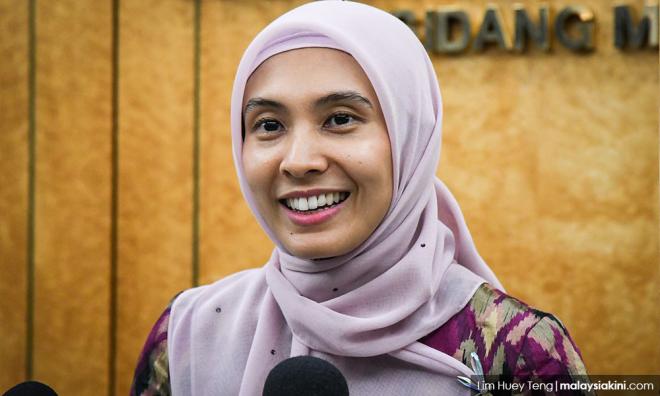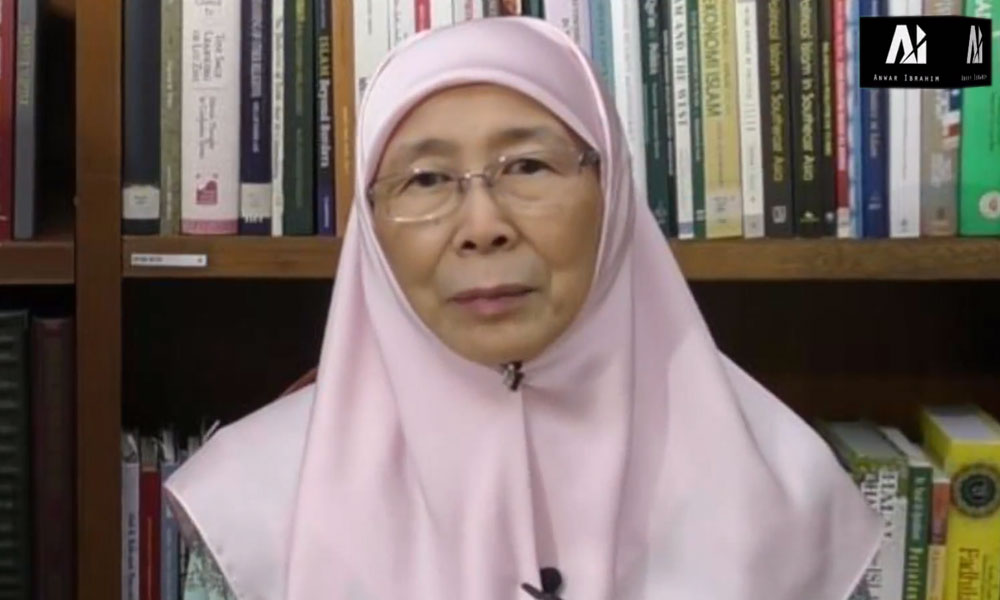
MP SPEAKS | As the PKR spokespersons for the Women, Family, and Community Development Ministry, we humbly suggest that the federal government reorient its focus on protecting and preserving the dignity and wellbeing of women, children, the elderly, the differently-abled, the destitute, victims of domestic violence and abuse, and disaster victims - through the reestablishment of the ministry as a frontline ministry.
Considering that the ministry must devise ways to protect female-headed households, children susceptible to predatory elements, an ageing Malaysian population, and other vulnerable pockets of society - we, therefore, argue that the empowerment of such groups must include the empowerment of the ministry.
Social protection in a pandemic
Like other governments around the world, Malaysia saw to it that one-off cash disbursements are available to households that earned below a certain level. However, the vulnerability in a pandemic is defined not only by one’s state of finances but also one’s accessibility to social protection.
Throughout the movement control order (MCO) period calls for help spiked. The Women’s Aid Organisation saw enquiries to its domestic violence hotlines increase threefold. Another hotline, manned by the tireless professionals of the Health Ministry (MOH), brought to light the need for emotional and mental health support as half of its callers showed signs of anxiety, stress, anger or depression.
Insecurities about food, safety, family, rent and utilities have taken a toll on many. Allaying the common distress brought by the disruption that is Covid-19 is a duty that falls also on the shoulders of the Women, Family, and Community Development Ministry, despite the MOH being the first port of call for information on the ongoing pandemic.
We urge a look at New Zealand’s bold “Child and Youth Wellbeing Strategy” to future proof vulnerable segments. Weaved into the fabric of PM Jacinda Ardern’s policies since August 2019, it was followed suit by an uncompromising and adequate Covid-19 list of measures - covering financial support, education, safety and nutrition for the young.
This country unrolled financial support such as tax credits, income relief and rent freezes, but also importantly, a funding boost to guarantee the delivery of food assistance, online teaching and learning, and family violence services.
The toothless tiger
Unfortunately, despite its mammoth task, it is as if the ministry has been disarmed. From RM1.9 billion in 2016, the ministry saw its portion of the federal budget increase to RM2.5 billion in 2020, an improvement but with space for more, especially considering the total federal budget of RM297 billion.
The disarmament continued with Perikatan Nasional’s decision to pockmark the credible appointments of activists and professionals as heads of agencies under the ministry. Forced removals of prominent leaders in society, replaced with MPs with glaring lack of relevant experience behoves the question, et tu LPPKN?
It bears reminding that the ministry’s existence is to serve the needs of the underprivileged and the vulnerable, and not to stroke the egos of men.
Additionally, there are 110 social protection programmes in Malaysia spread across more than 20 ministries and agencies. The Housing Assistant Program (PPRT), for example, serves to provide housing for those who are poor or underprivileged yet it is placed under the purview of the Rural Development Ministry when the Women, Family, and Community Development Ministry has long stood steadfast in aiding and uplifting the homeless.
As for our social welfare frontliners - the number remains insufficient. As it stands, the ratio in Malaysia is one social worker for every 8,576 citizens - lower than countries such as the United States (one for every 490); Australia (one for every 1,040), and Singapore (one for every 3,448). Indeed, as a revamped front liner ministry, the ministry would be given first dibs in tabling the Social Work Profession Act.

Calling the ministry forward
The PN government moved on June 29 to “reactivate” the Malaysia Social Protection Council (MySPC) - a council that was established in 2016 to pick the brains of the ministry, the Finance Ministry, the Human Resources Ministry and the Economic Planning Unit to develop a holistic and integrated social protection system.
Under Dr Wan Azizah Wan Ismail, then deputy prime minister and former women, family, and community development minister, work had been undertaken to achieve precisely that.
In fact, a National Social Protection Plan was underway, as was the establishment of a Social Assistance Working Committee. The latter was to be spearheaded by the ministry and was tasked to streamline our motley crew of “fragmented” social assistance programmes.
Now, as the chairpersonship baton of MySPC is passed to none other than Tan Sri Muhyiddin Yassin; we urge that politics not undo the good work of the past.
Thus far, the ministry’s bills have not made the cut for this parliamentary sitting. Other than the Social Work Profession Act, the Sexual Harassment Act, for example, was ready to have been tabled as early as March, but now has been inexplicably delayed to year’s end. It was needed yesterday.
Accessibility to social protection, welfare and assistance are non-negotiable at all times, but its urgency is accentuated in a pandemic. Every day, Malaysians see security measures from the Home Ministry touted with this very urgency; we say re-centre the role of Women, Family, and Community Development Ministry and advocate for social support measures with equal zeal.
NURUL IZZAH ANWAR and NOR AZRINA SURIP are Permatang Pauh MP and Merbok MP respectively. - Mkini


No comments:
Post a Comment
Note: Only a member of this blog may post a comment.